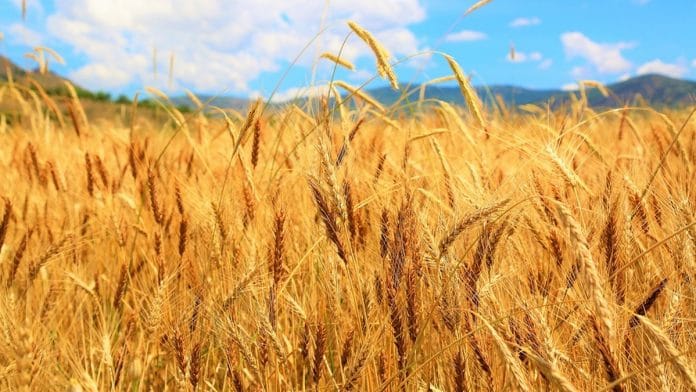New Delhi: India’s dairy, meat and cereal exports could see a slump over the new few months as the Food and Agriculture Organization (FAO) registered a decline in world food prices in February due to the coronavirus outbreak.
The FAO Food Price Index (FPPI), which tracks monthly changes in the international prices of commonly-traded food commodities, averaged 180.5 points in February, down 1 per cent from January, according to FAO’s monthly report Thursday.
While FAO’s vegetable oil, meat, and cereal indices declined 10.3 per cent, 2 per cent and 0.9 per cent from January, the dairy and sugar indices rose by 4.6 per cent and 4.5 per cent, respectively.
The FPPI fall in February is the first in four months. To be sure, the index rose 8.5 per cent on a year-on-year basis.
Also read: Coronavirus impact on India’s trade estimated to be $348 million: UN report
How India might get hit
With some of these commodities forming crucial components in Indian exports, the fall in their global prices could affect the economy.
While the FAO’s dairy prices index rose in February for the fourth consecutive month, the report noted how the spread of coronavirus in China affected skim milk powder (SMP) prices.
“…quotations for skim powder (SMP) and whole milk powder (WMP) declined due to a slowdown in purchases by China — the world’s largest milk powder importer — because of the delays in cargo handling in ports, affected by the spread of the coronavirus,” said the FAO report.
India is the world’s largest SMP exporter. In 2018-19, India’s dairy exports grew 126 per cent to 1,23,877 metric tonnes (MT), roughly worth Rs 2,700 crore. In this, SMP saw the largest growth at 292 per cent — from 16,616 MT in 2017-18 to 46,137 MT in 2018-19.
Other than dairy, India’s meat exports could also see a decline.
“In February, international prices of ovine meat fell the most, followed by bovine meat due to reduced imports by China, reflecting delays in cargo handling in ports, which, in turn, led to stock build-up in major exporting countries,” said the FAO report.
India is the largest beef exporter in the world. In 2017-18, its buffalo meat exports increased by nearly 2 per cent to 13.48 lakh tonnes.
The outbreak of coronavirus could also spell bad news for Indian wheat and maize exports. The FAO report said wheat prices were “generally lower, in part due to continued well-supplied markets while the negative impact on demand resulting from the spread of the coronavirus (COVID-19) also contributed to the price decline”.
“Maize prices retreated too, influenced by expectations of weaker demand from the feed sector due to overall deteriorating economic prospects,” it said.
According to an Agricultural and Processed Food Products Export Development Authority report, India exported 10,51,277.95 MT of maize in 2018-19, worth Rs 1,800 crore.
India is also set to witness a bumper wheat crop, with government estimates suggesting that the output could rise 5.68-7.64 per cent to 108-110 million tonnes in the rabi season.
Also read: PSU Cotton Corp comes to the rescue of farmers hit by coronavirus disruption







We do not need an article to know this. The entire world trade will take a big hit. India is no exception.